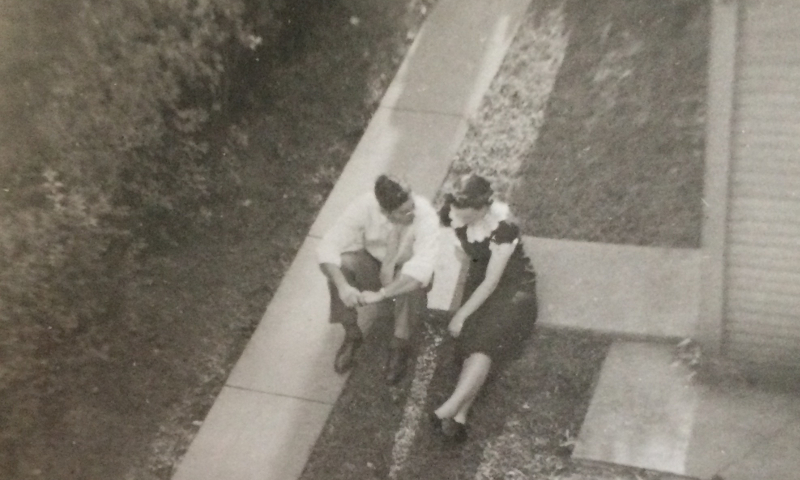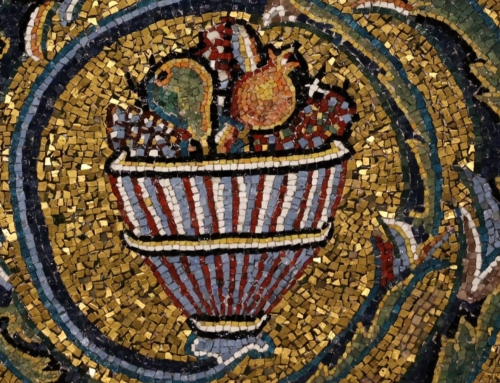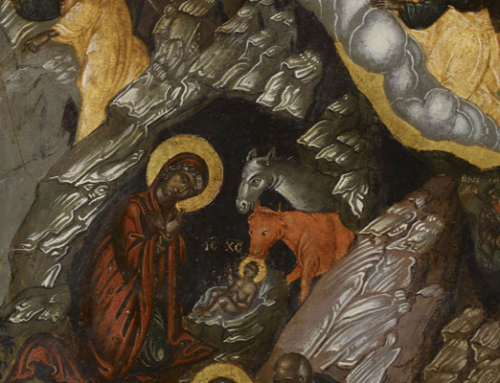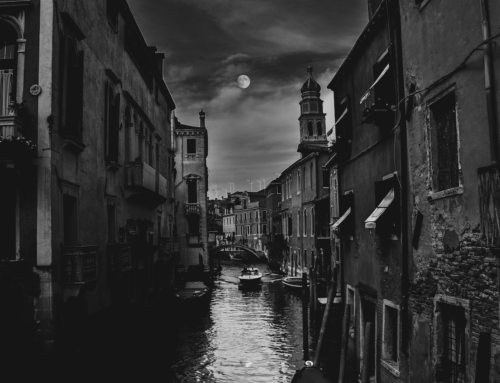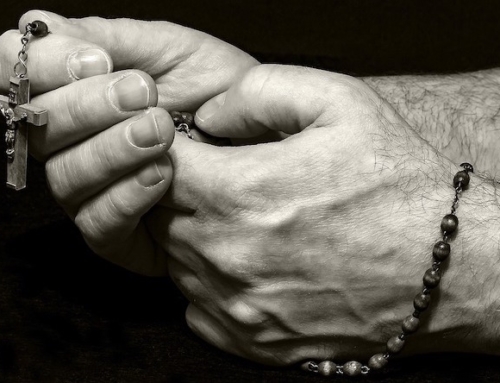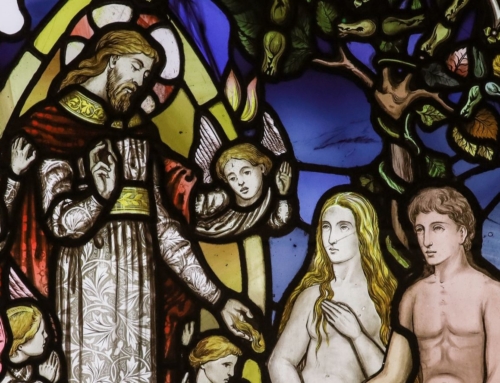Today I will be burying my grandmother.
After 96 years of life, she returned to the Lord in the early morning of Easter Sunday. Despite the sadness, everyone in the family, every branch in that great tree, thought to themselves, “Talk about good timing!” For a woman so devout all her life—not only in personal prayer, but just as much so in her living room proclamations on religion and politics—Rosemary Danaher providentially breathed her last in those dark hours, when the women were readying themselves to go to the tomb, only to find that the Lord was risen and that death had recently lost its sting.
It’s fine to think of heaven at these times, but it’s also important to think of earth. That’s where we’re laying her, after all.
And not just any earth, but this particular plot. Wenona, Illinois. It’s a town few have ever heard of. Yet if the earth could speak, it could recount so many histories of so many families, including my own. The Danahers came all the way from Limerick to settle right here. They farmed this earth and are now buried under it. This is where they lived and died, and it was “the world” for them, the only one.
My generation prefers cities. The idea of living in a small town basically equates to the idea of living on Mars. What’s there? No work. Nobody. No possible way to live.
But that’s not true. Wherever there is ground and open sky which brings in rain, there are people who still live there, and still get along each day, and who still think and feel as deeply as the busiest and most cosmopolitan of urbanites. You don’t need to move to a big city to learn about life. It happens wherever humans gather. It happens in community. And it happens in a peculiarly vast and wonderful way in communities laid out there on the good earth, surrounded by the elements and the winds, closer to that vast sea of brown earth which gives life to green growth, and always enjoying the brighter stars at night. Nature teaches us about life and its rhythms and lessons, if we live in such a way as to hear it.
I think particularly of a recent book I’ve read, Marilyn Robinson’s Gilead. The aged congregationalist minister who narrates the story has spent his life in a similar town, Gilead, Iowa. In the final pages, he about bursts when he declares:
I love the prairie! So often I have seen the dawn come and the light flood over the land and everything turn radiant at once, that word “good” so profoundly affirmed in my soul that I am amazed I should be allowed to witness such a thing. There may have been a more wonderful first moment “when the morning stars sang together and all the sons of God shouted for joy,” but for all I know to the contrary, they still do sing and shout, and they certainly might well. Here on the prairie there is nothing to distract attention from the evening and the morning, nothing on the horizon to abbreviate or to delay. Mountains would seem an impertinence from that point of view.
But my grandmother was a city girl, a Cassidy, raised in Chicago and not among these country-dwelling Danahers. Yet she fell in love with one, and spent her days thenceforth in such style. Yes, eventually upgrading to larger towns, but never back to the city. Now she will lay with the rest of them, beside her husband John, beside the corn and the country church.
And a fitting place it is. Not simply for her, but for anybody. Our narrator continues:
To me it seems rather Christlike to be as unadorned as this place is, as little regarded. … I love this town. I think sometimes of going into the ground here as a last wild gesture of love—I too will smolder away the time until the great and general incandescence.
Unadorned as these small towns are, so too are we humans. We are of the dust and shall return there, not too far in our own future. Cities don’t quite help us recall, as the prairie does, that along with the rest of nature, our riches come and go with the seasons. And along with nature we await a final splendor, when we won’t have to die.
✠
Image: “Courting Days” (John and Rosemary Danaher, from a family album)

